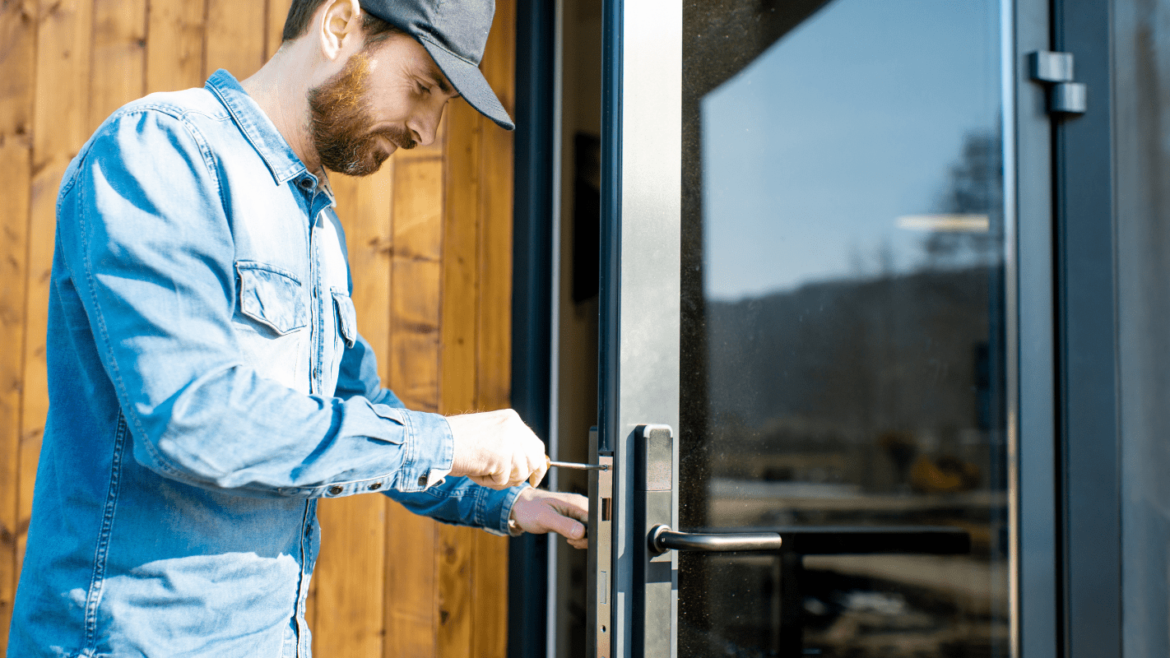Rekeying Locks In Edmonton: Everything You Need To Know
By: rckeys.com
Locks are the guardians of our security, protecting our homes and businesses from unauthorized entry.
However, there are times when we need to update or enhance our security, and rekeying locks becomes a crucial process.
In this comprehensive guide, we will delve into the world of rekeying, exploring its definition, interesting facts about the rekeying industry, reasons why people need rekeying services and their associated benefits.
We will also discuss how to find a reliable rekeying service in Edmonton and answer the top 10 frequently asked questions about rekeying locks.
Let’s get right into this.
Understanding Rekeying: What Is It?
Rekeying a lock is the process of altering the lock’s internal components, specifically the pins and springs within the lock cylinder, to render existing keys ineffective.
Essentially, it provides you with a new set of keys that work with the same lock while making the old keys obsolete.
Rekeying offers an affordable and efficient way to enhance security and control access to your property.

Top 5 Reasons People Need Rekeying Services And Their Benefits
1. Moving Into A New Home
- Benefit: Peace of mind knowing that previous occupants or anyone else with access to the old keys cannot enter your new residence.
2. Lost Or Stolen Keys
- Benefit: Prevent unauthorized access if your keys are lost or stolen, as the old keys will no longer work.
3. Employee Turnover
- Benefit: Maintain security in your business by rekeying locks when employees leave or change roles.
4. Enhancing Security
- Benefit: Strengthen security measures by controlling who has access to your property, especially in high-risk areas.
5. Master Key Systems
- Benefit: Efficiently manage access control within your organization, limiting access to specific areas as needed.
How To Find A Reliable Rekeying Service
When searching for a rekeying service, consider the following steps to find a trustworthy and skilled locksmith:
Ask for Recommendations: Seek recommendations from friends, family, or colleagues who have used rekeying services in the past.
Check Credentials: Verify that the locksmith is licensed, insured, and bonded to ensure professionalism and accountability.
Read Reviews: Read online reviews and testimonials from previous customers to gauge the locksmith’s reputation.
Request Quotes: Obtain quotes from multiple locksmiths to compare prices and services offered.
Ask Questions: Interview potential locksmiths about their experience, the rekeying process, and any guarantees or warranties they offer.
Check for Emergency Services: Ensure that the locksmith offers 24/7 emergency rekeying services for unexpected situations.
Request References: Request references from the locksmith and contact them to inquire about their experiences.
Visit Their Website: Explore the locksmith’s website to learn more about their services, expertise, and service areas.
Verify Identification: When the locksmith arrives, ask for identification and ensure their vehicle bears the company’s logo.
Get a Written Estimate: Always request a written estimate before the work begins to avoid any surprises regarding pricing.
Facts About The Rekeying Industry
Rooted in History: The concept of rekeying locks dates back to the early 19th century when Solomon Andrews, an American locksmith, received a patent for his lock design that allowed for key changes without replacing the entire lock.
Cost-Effective Security: Rekeying is often more cost-effective than replacing locks entirely, making it a popular choice for homeowners and businesses looking to bolster their security.
Enhanced Security: Rekeying locks can improve security by ensuring that only authorized individuals have access to your property. It’s a crucial step after moving into a new home or business space.
Master Key Systems: Businesses often use rekeying to create master key systems, allowing for hierarchical access control within the organization.
Quick Process: Rekeying can be completed relatively quickly by a professional locksmith, minimizing disruption to your daily routine.
Environmentally Friendly: Rekeying locks reduces waste by reusing existing lock hardware, making it an environmentally conscious choice.
Versatile Application: Rekeying is applicable to various types of locks, including deadbolts, doorknob locks, and even padlocks.
DIY Potential: While it’s recommended to hire a professional locksmith for rekeying, some enthusiasts with the right tools and knowledge attempt it as a DIY project.
Key Control: Rekeying offers better key control, as you can account for all copies of the old keys and issue new ones only to trusted individuals.
Legal Requirement: In some states and industries, rekeying locks is a legal requirement to protect sensitive information or comply with regulations.
FAQs About Rekeying Locks
1. What’s the main advantage of rekeying over replacing locks entirely?
- Answer: Rekeying is typically more cost-effective than replacing locks and allows you to retain existing hardware while enhancing security.
2. Can all types of locks be rekeyed?
- Answer: Rekeying is applicable to various lock types, including deadbolts, doorknob locks, and padlocks.
3. Is rekeying a DIY-friendly task?
- Answer: While it can be attempted as a DIY project, it’s recommended to hire a professional locksmith for optimal results.
4. How long does the rekeying process usually take?
- Answer: The process is relatively quick and can often be completed in a matter of minutes by a professional locksmith.
5. Can rekeying be done for master key systems?
- Answer: Yes, rekeying is commonly used to create or update master key systems for businesses and organizations.
6. What’s the cost of rekeying locks?
- Answer: The cost varies depending on factors such as the number of locks and the complexity of the job. It’s best to request quotes from locksmiths.
7. Is rekeying environmentally friendly?
- Answer: Yes, rekeying is considered environmentally friendly because it reduces waste by reusing existing lock hardware.
8. Can I rekey locks after a break-in?
- Answer: Yes, rekeying locks after a break-in is a recommended step to prevent the intruder from returning with stolen keys.
9. Are there legal requirements for rekeying locks in certain industries?
- Answer: Yes, in some states and industries, rekeying locks is a legal requirement to protect sensitive information or comply with regulations.
10. Can rekeying locks be part of a larger security upgrade?
- Answer: Absolutely, rekeying locks can be integrated into a broader security enhancement plan for homes and businesses.
In conclusion, rekeying locks is a crucial aspect of maintaining security and controlling access to your property.
It offers numerous benefits, including cost-effectiveness, enhanced security, and environmental responsibility.
By following the steps to find a reliable rekeying service and understanding the top FAQs, you can confidently navigate the world of rekeying and ensure the safety of your home or business.
If you have any questions about our article “Rekeying Locks In Edmonton: Everything You Need To Know” or need rekeying services in Edmonton call us at (780) 265-0062 or chat with us on LiveChat or social media.



